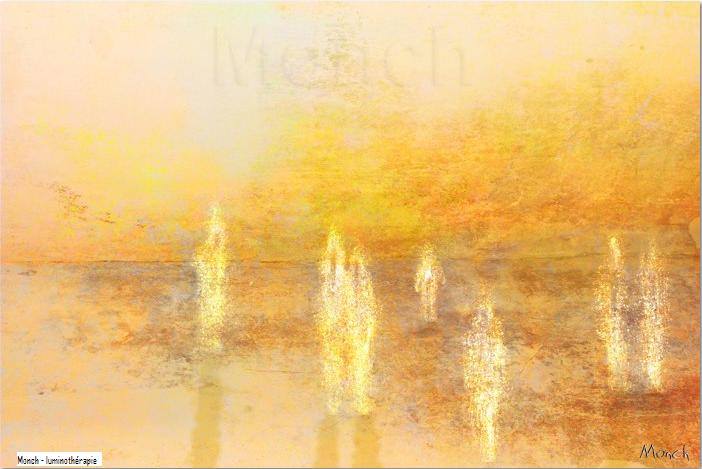Waldeinsamkeit: The Germans have a Word for That.

"Our hands imbibe like roots, so I place them on what is beautiful in this world"
— St. Francis of Assisi
When people think about German words without a one-word translation into English, they often default to “schadenfreude”, which describes the pleasure one might feel when witnessing the distress of another. That the Germans even felt the need to have this very specific term is perhaps telling.
But I prefer to think of “waldeinsamkeit”.
It is without a direct English translation. It can best described as “the feeling of being alone in the woods or the soothing solitude of the forest”. The word is a combination of “wald” meaning forest, and “einsamkeit” meaning loneliness or, more precisely, solitude, whereas “samkeit” means sweetness.
My goodness, such precision.
This notion of sweet forest solitude is nothing new. Many religious ascetic ideals where the forest is a place of contemplation have permeated monasticism both in the East and in the West.
Staying in Europe, Christian monasticism centred around monks and hermits seeking refuge and inner calm. Even today, forest hermitages are popular destinations both for the curious and the contemplative. The retreat of St. Francis of Assisi, who famously called animals and natural phenomena “brother” and “sister”, is still a site of pilgrimage today (although somewhat marred by gift and memento kiosks en route).
As this remarkable term originates in Germany, it seems appropriate to first consider German literature. Most of us are familiar with the tales of the Brother Grimm, within which lie woods and forests; however these green spaces are not always contemplative. They are often places of danger where the protagonists have natural or supernatural obstacles to overcome. Some of the most familiar examples would include “Little Red Riding Hood”, “Snow White and the Seven Dwarfs”, “Jorinda and Joringel” (one of my favourites), “Hansel and Gretel”, or “Snow White and Rose Red” (another favourite).
Not really waldeinsamkeit situations at all.
The German Romanticism movement in literature brought the term out of figurative darkness and back into the gloaming. Many of the wonderful paintings by David Caspar Friedrich (1774-1840) exemplify the burgeoning concept of the romantic in nature and solitude (see image at top).
Later this precise German term crossed the Atlantic into American literature where it found itself cited but untranslated. Ralph Waldo Emerson's poem “Forest Solitude” described the concept, as did Henry David Thoreau in Walden: A Life in the Woods. With a certain disappointment I feel compelled to point out that Thoreau actually lived a relatively short walk from town. His philosophy is delightful and largely without blemish, but his early off-the-grid experience has a whiff of modern day primitives who stock up periodically at Walmart. But I digress.
Coming to more modern literature, one cannot ignore the characters created by J.R.R. Tolkien. Think of Tom Bombadil and Goldberry, living blissfully (and to a large extent unaware and disinterested of the greater exterior world) in the Old Forest. Think of the marvellous Ents, solitary herders and shepherds of the forest trees, both those who are sleepily and slowly sentient and those who have drifted off into a much deeper slumber, enveloped and swaddled in waldeinsamkeit.
In a bit of “sideways” etymology, we do have the uncommon word “wald” in English. It comes to us through Old English where it meant power and authority, from the earlier Proto-Germanic “walda” (“power”), which derives from the Proto-Indo-European “wald”, meaning to be strong, powerful and to prevail and possess.
From Old English, the word changed to the Middle English term “Walden” which again refers to power, authority, possession, strength, and ownership, and has some association with a sense of force and violence.
Eventually we come to the more recent usage of “wald”, which became quite specific — a high land covered with woods and forest, or simply meaning a forest.
Returning to waldeinsamkeit, maybe the sweetness of forest solitude is not really about being alone but being immersed in an infinity of other-than-human consciousness. I don't think you need to be a devoted animist to sense this. In the forest, we can wander amidst an enlivened mystery.
To wander…. “Wander” is another lovely term and a deceptively simply activity that requires so little and yet so much. It does not require money or special equipment, but it does need a certain… could we say a spaciousness of the mind and an expansiveness of time? A willingness to slow our pace. An openness to meander, wend, and undulate through a liminal space of suspended time and to allow our boundaries to become more permeable.
In “Wanderlust”, author Rebecca Solnit describes her belief that “the mind, like the feet, works at about three miles an hour. If this is so, then modern life is moving faster than the speed of thought, or thoughtfulness.”
I don't know whether anyone can actually clock the mind's speed at three miles an hour; but oh, how I sense that we do indeed have an innate speed of thought and that in our busy world we are careening past it heedlessly.
Solitude, sweetness, power, thought, openness, spaciousness; Tolkien articulated something of these and of the wonder and danger of the forest when the wizard Gandalf said:
"It’s a dangerous business, Frodo, going out your door. You step onto the road, and if you don’t keep your feet, there’s no knowing where you might be swept off to.”
Would you like to read other posts? If so, please click the Home Page link below:

You, Dear Reader, are much needed and appreciated.
Everything written requires a reader to make it whole. The writer begins, then you, dear reader, take in the idea and its image, and so become the continuation of its breath. Please subscribe so that my words can breathe. Consider this my hand, reaching out to yours.
